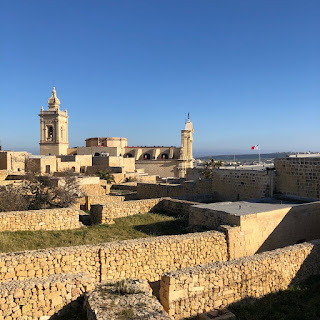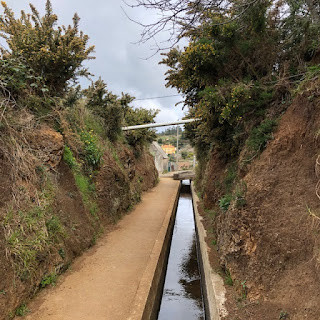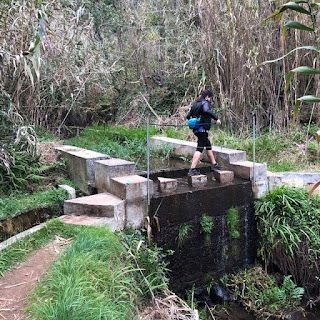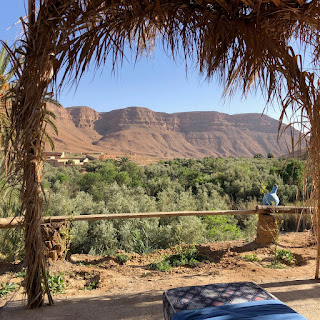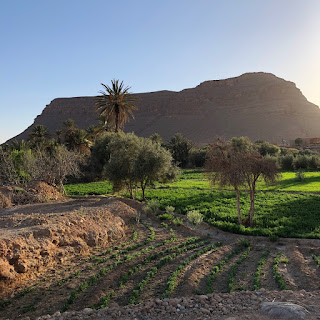2019 Sabbatical
Wednesday, May 8, 2019
Taxi Ride in Alexandria, Egypt
Monday, April 8, 2019
Thought on Malta
Although we posted some photos on Instagram and Facebook, didn't really say much about Malta. Check it the Facebook posts, if you have access.
After Egypt, it was a very easy place to visit. Given that it was under English control for so many years, things were rather efficient and in decent shape. A fellow partner who had spent a large chunk of his sabbatical on Malta had noted that he felt a certain 1st world veneer over a 3rd world base. Coming from Egypt, we didn't really get that sense.
What was so amazing about Malta is the depth of history. The Neolithic temples were extensive and of incredible creative, complex and unique. Clearly a financially stable and rich society dating a good 1000 years before the first pyramids. At some point it seemed to terminate and became repopulated again.
Malta's history of the Knights of Saint John, who came to Malta after withdrawing from Rhodes, is also a rich vein of history to explore. The main cathedral is quite amazing. It is not as huge as some we have seen, but the resources put into the facility is amazing. The Knights had groups from the Crusades from the various places in Europe and each group, such as those from Provence, were given an area of the cathedral to decorate. The Knights were basically pirates with respect to the Ottomans and other Muslim groups and amazed amazing wealth. One is always amazed with what can be created when a bunch of men with extreme wealth start competing with each other. Similar thing occurred with rich men during the Renaissance with gardens in Italy. Tivoli Garden was one of such gardens.
In addition, there is the history of World War II and the role that Malta played. It was bombed more heavily that any other place. Nice nautical museum, as well.
Food on Malta was hard to find. (Good food that is.). Seems a bit of the English influence. The Italian influence was from Sicily and Southern Italy, so there is lots of heavy tomato sauces in everything.
Our last dinner in Malta was at a wonderful restaurant. Too bad we didn't find it earlier. I had an amazing rabbit in the style of Malta. I was sucking the bones (learned from my Dad and sister). The waiter commented: "Finally a tourist that eats like a Maltan."
We ended up renting a car for two days in Malta to hit the sites outside of the main city. Was a great way to see the islands. Surprisingly small. Was a kick getting used to a stick shift while driving on the left side of the road (English influence).
Being in Malta during Carnival was a kick. Amazing how everyone was out night after night. Lots of parades, floats, kids dressed up. A real bonus.
Overall, a great rest and transition to Morocco.
Sunday, March 31, 2019
Monday, March 25, 2019
Levadas in Madeira
Sunday, March 17, 2019
Being Shocked in Milan
Traveling in Muslim countries, one gets used to certain conventions with respect to behavior.
When we left Egypt we flew to Milan for about 36 hours before heading to Malta.
We stopped upon arrival in Milan at the airport for coffee. While standing in line, an Italian man grabbed the breast of the woman he was with, as a joke I assume.
I should note that the couple were not your normal couple. Lots of gold, designer sportswear, fascinating cropping of hair, but still, I found it so totally disrespectful, unacceptable and rather repulsive.
Random photo for this blog to follow (cell phone cover):
Visiting a Palmeraie
After visiting the Sahara in Southern Morocco, we headed north toward Fes. On the way up, we stayed in the Ziz Valley.
The Ziz river basically flows south and disappears and reappears. When it reappears (water table is above ground) it is basically an oasis, and you find palmeraie (palm groves). The palmeraie is more than just a palm grove, it is also a whole way of life around this precious water and making the most of the fertile land associated with it.
We had driving by many palmeraie on the way down to the Sahara, but had not actually gone into one in a meaningful way.
The stop at the palmeraie in the Ziz Gorge allowed such a walk through a palmeraie without any tourists or invasion of the outside world.
The palms basically provide dates, wood and fiber material for roofs, etc. They also provide a higher canopy for shade for crops that grow under them. We saw both fava beans and alfalfa, both of which fix nitrogen. The alfalfa is used mainly for feed for animals. Lots of fruit trees, such as apricot and apple trees. Lots of other vegetables, as well.
The walk also included an area where many of the buildings were slowly melting back into the soil.
We stayed in a Berber guest house. We have been amazed at how comfortable all of the beds have been in Morocco. They seem to have that down.
Wonderful stop on the way to Fes.




